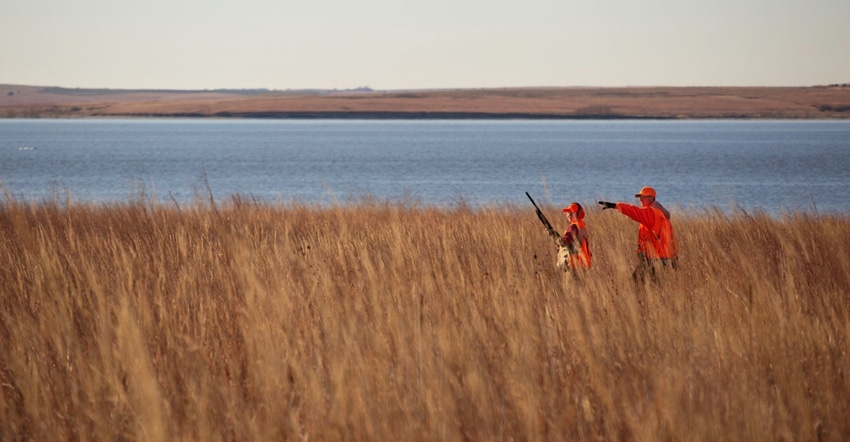April 9, 2020

The U.S. Fish and Wildlife Service is planning to increase public access through new or expanded hunting and sport fishing opportunities at four national wildlife refuges in Kansas. Hunting and fishing programs are administered to ensure sustainable wildlife populations on refuge lands where these activities are compatible with the refuge’s management goals and other recreational activities.
In Kansas, the service proposes following:
Flint Hills National Wildlife Refuge in Coffey County. Open badger, bobcat, coyote, skunk, furbearer, raccoon, opossum and fox on acres already open to other hunting and expand the season date range for existing white-tailed deer hunting.
Kirwin National Wildlife Refuge in Phillips County. Open woodcock and rail hunting on acres already open to other hunting; open badger, bobcat, coyote, fox, furbearer, opossum, raccoon and skunk; expand existing squirrel and rabbit hunting; expand existing turkey hunting to new acres; and expand sport fishing to new acres.
Marais des Cygnes National Wildlife Refuge in Linn County. Open crow, badger, bobcat, fox, furbearer, opossum, raccoon, striped skunk and coyote on acres already open to hunting and expand access for all other species on the refuge by removing permit requirements.
Quivira National Wildlife Refuge in Stafford County: Open crow, badger, beaver, coyote, fox, opossum, raccoon, skunk, furbearer, turkey, white-tailed deer and mule deer hunting on acres already open to other hunting.
When developing these proposals, the service coordinated with local, state, and tribal partners, including the Kansas Department of Wildlife, Parks and Tourism. The goal is to streamline regulations, increase public access opportunities, and support Kansas hunters and anglers using public lands.
Hunting and fishing activities directly fund wildlife conservation in North America. In order to engage in migratory bird and waterfowl hunting, hunters must purchase a Migratory Bird Hunting and Conservation Stamp (duck stamp) as a license. For every dollar spent on duck stamps, ninety-eight cents directly supports the purchase of vital wildlife habitat or to acquire conservation easements within the National Wildlife Refuge System.
In addition, the Federal Aid in Wildlife Restoration Act sends revenue from excise taxes on firearms, ammunition, and other related equipment to state wildlife agencies, like the Kansas Department of Wildlife, Parks and Tourism. The agencies then use these funds to support wildlife conservation projects, hunter education and outdoor recreation access. These annual payments to state fish and wildlife agencies have resulted in the recovery of deer, turkeys and many non-game species.
National wildlife refuges provide vital habitat for thousands of species and access to world-class recreation such as fishing, hunting, boating, nature watching, photography and environmental education. In doing so, they support regional economies to the tune of $3.2 billion dollars per year and support more than 41,000 jobs.
The proposals are available on each refuge’s website and the public is invited to submit comments by April 30. Please submit comments for Flint Hills, Marais des Cygnes, and Quivira national wildlife refuges to Craig Mowry, project leader, Kansas National Wildlife Refuge Complex, at 620-392-5553 or [email protected]. Submit comments for Kirwin National Wildlife Refuge to Brad Krohn, project leader, Kirwin National Wildlife Refuge, at 308-263-3000, ext. 102 or [email protected].
Source: U.S. Fish and Wildlife Service, which is solely responsible for the information provided and is wholly owned by the source. Informa Business Media and all its subsidiaries are not responsible for any of the content contained in this information asset.
You May Also Like




